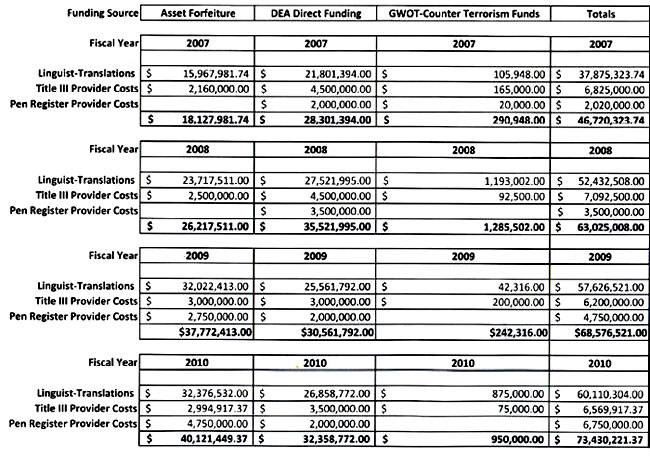|
by Cade Metz in San Francisco 18 November 2010 from TheRegister Website
Microsoft does not charge for government
surveillance of its users, whereas Google charges $25 per user, according to
a US Drug Enforcement Admission document turned up by security and privacy
guru Christopher Soghoian.
from http://files.spyingstats.com/money/dea-surveillance-pricing-2007-2010.pdf
A wiretap grabs actual telephone or Internet
conversations, whereas a pen register merely grabs numbers and addresses
that show who's doing the communicating.
But they show that Google charges $25 and Yahoo!
$29.
Department of Justice documents show that telcos may charge as much as $2,000 for a pen register. On the one hand, Microsoft could be commended for choosing not to make a single penny from government surveillance.
But on the other, Soghoian says, the company should at least charge that penny, as that would create a paper trail.
Most wiretap orders in the US involve narcotics cases, so DEA spending likely accounts for a majority of wiretap spending.
|

